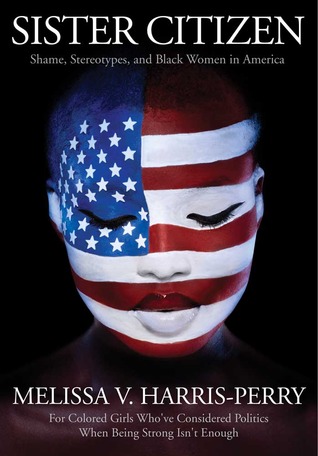Hardcover: Own
Publisher: Yale University Press
Published: 2011
378 pages
Read: Throughout January and February 2019
Jezebel's sexual lasciviousness, Mammy's devotion, and Sapphire's outspoken anger—these are among the most persistent stereotypes that black women encounter in contemporary American life. Hurtful and dishonest, such representations force African American women to navigate a virtual crooked room that shames them and shapes their experiences as citizens. Many respond by assuming a mantle of strength that may convince others, and even themselves, that they do not need help. But as a result, the unique political issues of black women are often ignored and marginalized.
In this groundbreaking book, Melissa V. Harris-Perry uses multiple methods of inquiry, including literary analysis, political theory, focus groups, surveys, and experimental research, to understand more deeply black women's political and emotional responses to pervasive negative race and gender images. Not a traditional political science work concerned with office-seeking, voting, or ideology, Sister Citizen instead explores how African American women understand themselves as citizens and what they expect from political organizing. Harris-Perry shows that the shared struggle to preserve an authentic self and secure recognition as a citizen links together black women in America, from the anonymous survivors of Hurricane Katrina to the current First Lady of the United States.
In this groundbreaking book, Melissa V. Harris-Perry uses multiple methods of inquiry, including literary analysis, political theory, focus groups, surveys, and experimental research, to understand more deeply black women's political and emotional responses to pervasive negative race and gender images. Not a traditional political science work concerned with office-seeking, voting, or ideology, Sister Citizen instead explores how African American women understand themselves as citizens and what they expect from political organizing. Harris-Perry shows that the shared struggle to preserve an authentic self and secure recognition as a citizen links together black women in America, from the anonymous survivors of Hurricane Katrina to the current First Lady of the United States.
My Thoughts:
Harris-Perry does a wonderful job of telling the readers of the struggles black women have experienced and continue to experience in their fight to be seen and recognized as citizens in America. Her focus is specifically on politics. How can black women engage in politics when they are barely seen as rightful citizens in their own country?
Harris-Perry discusses what citizenship means. She quotes from Hegelian philosophy which states: "Citizenship is more than an individual exchange of freedoms for rights; it is also membership in a body politic, a nation, and a community. To be deemed fair, a system must offer its citizens equal opportunities for public recognition and groups cannot systematically suffer from misrecognition in the for of stereotype and stigma." She argues that black women have been denied this citizenship by their society and their government.
Harris-Perry discusses each of the stereotypes and their history and how they're experienced through the medium of literature and individual experiences. She also conducted polls where she asked African American women their thoughts and reactions to these stereotypes and experiences. How doe they affect their ability to be citizens in this country, to engage and make their voices heard? Basically, it's so freaking hard: "African American women not only struggle at the intersection of multiple forms of marginalization; they also find that their political labor often leaves them mentally and physically less well."
Until we can systemically treat African American women as fully recognized human beings and citizens of this country, we can't say we have equality for all. This book was an eye-opener. It was a tough read but one I think everyone needs to read.
Here a few quotes that really stood out to me:
"...black women's experiences act as a litmus test for the nation."
Harris-Perry quotes Anna Julia Cooper, a 19th-20th century educator: "Only the black woman can say 'when and where I enter, in the quiet, undisputed dignity of my womanhood, without violence and without suing or special patronage, then and there the whole...race enters with me.'"
"African Americans bristle at the idea of color blindness because it suggests that race is irrelevant to identity. They want to be understood as black and thus tied to a history and culture associated with blackness. At the same time, they do not want to be reduced to their racial identity alone. Just recognition means being neither blind to nor blinded by identity differences."


This sounds like a fascinating read. I just finished a book about the social lives of black women in the early 1900s and I think it would be a great follow up to learn more about the experiences of black women today.
ReplyDeleteThis looks like a good one.
ReplyDelete